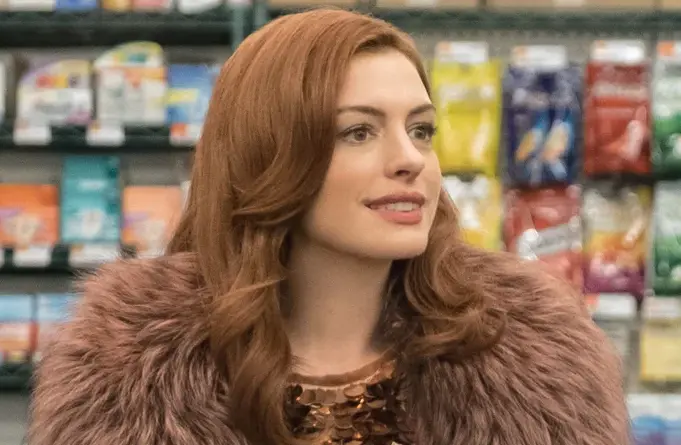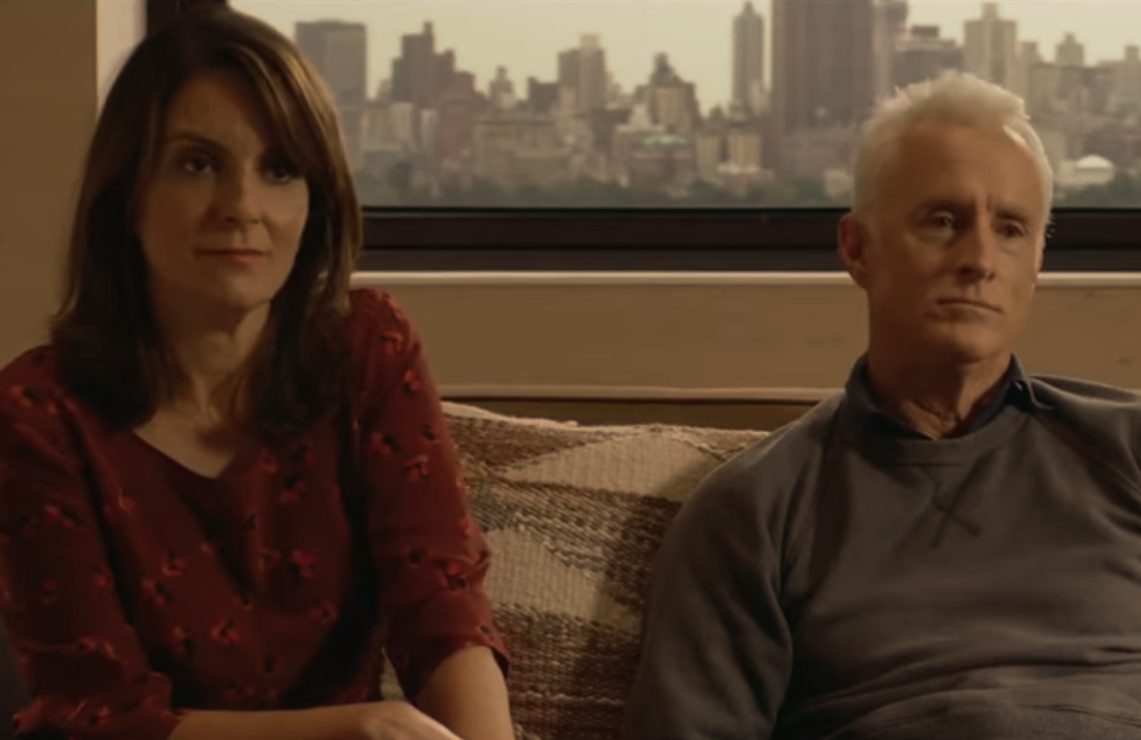An All-Star Cast Can't Save Amazon's Unlovely Modern Love
-
 Anne Hathaway is one the many big names appearing in Amazon's Modern Love. (Amazon)
Anne Hathaway is one the many big names appearing in Amazon's Modern Love. (Amazon)In the 1950s a popular radio show was “This I Believe,” where an ordinary or famous American would read an personal credal essay on the air. The idea has been revived a couple of times because the show captured the civic-mindedness and friendly Americanism of its day, which many liberal-minded folks would like to see make a comeback (minus the casually-accepted racism and sexism, of course).
In a typical yet touching episode from 1952, the actress Helen Hayes recalled going to pray at a chapel when her daughter was dying of polio. Admitting that she had “forgotten about God,” Hayes came to admire the working-class folks who faithfully filled the pews next to her. “Life had knocked them around,” she said, “but for a brief moment they were being refreshed by an ennobling experience.” One day Hayes had an epiphany: “I realized I was one of them. In my need I gained strength from the knowledge that they too had needs, and I felt an interdependence with them. I was learning the meaning of ‘love thy neighbor.’”
I thought of that old broadcast while watching Modern Love, the new Amazon Prime series based on the New York Times column that has already spawned a hugely popular podcast. Started on Halloween of 2004, “Modern Love” has served as a showcase for author-types to write about their most intimate relationships in terms that would’ve made their grandmothers in the 1950s blush. It’s not that there are descriptions of sex — the Times is a family newspaper — but the fact that people would affix their names to some of their most personal, embarrassing, and vulnerable moments says a lot about how times have changed. This kind of public, emotional disrobing undoubtedly explains why the column is a reader favorite, not unlike those bizarre advice columns you see in Slate.
“Modern Love” is enjoyed from coast to coast, and the podcasts are produced by Boston’s public radio station, but it’s inconceivable that this column could have originated anywhere but New York City. The very first contributor back in 2004 mentioned his therapist (a stress test then fashionable with New Yorkers), Sinatra, the Dalai Lama, and his current story assignment for a magazine. “Modern Love’s” recurring themes are trust, betrayal, need, lust, anger, and sweet longing, all as relatable as any pop song or Hallmark card, yet infused with a deeply introspective, overly sophisticated, at times self-parodying view that screams ZIP code one-oh-oh-something-something.
Modern Love the TV show consists of eight stories of modern love adapted from real life by the show’s producer-director, John Carney. The spirit of the show is utterly faithful to the column, for better or worse. If Woody Allen were still making movies in Manhattan, or if New York Stories or Night Shift were being filmed today, I doubt the results would be any more true to the neurotic, inwardly-focused subjects of these eight episodes.
Fittingly, the first one involves a doorman. He’s a strange, father-figure-type doorman (played by Laurentiu Possa) who watches after a single white female (Cristin Milioti) in his building as she deals with a series of lovers, none of whom meet his standards. This one has been anthologized before, as a YouTube cartoon, but that had a StoryCorps vibe to it. This is movie drama, told quietly, with a minimum of dialogue and understated, actorly performances. Episodes begin disorientingly in the middle of something and build toward a reveal, which isn't a bad way to go when you have 25 minutes to tell a thousand-word story, but the payoff doesn’t always seem worth it.

The second episode features a middle-aged journalist (Catherine Keener) convincing a young app developer she’s profiling (Dev Patel) to chase an old flame. The more of these star-studded episodes I watched (Tina Fey, John Slattery, Anne Hathaway, Andy Garcia are just a few of the big names who appear), the emptier I felt. I was watching love all right, but a love unmoored from any larger purpose or higher meaning. When Helen Hayes was the queen of New York (and people weren’t afraid to put both her names on a Broadway theatre), “love thy neighbor” was an ethical command, not an erotic suggestion. But there I go, assuming that modern lovers even think about such things.
The last episode begins with a vignette about second love in the late chapters of life, probably the sweetest story of the bunch. That’s followed by a brief but elegant denouement that revisits some of the earlier stories in the series, tying a ribbon around the season in a way that reminded me of the finale of another New York Times adaptation, Diagnosis on Netflix.
The question is, will you make it that far? I doubt I would have, were it not for this assignment. This may be partly critic fatigue — I’ve seen so many of these Manhattan-centric stories told over the years (HBO used to have a lock on them). Mostly, though, it’s because I see the whole “Modern Love” franchise as symptomatic of an age in which public pronouncements have become watered down to partisan talking points (“health care is a fundamental human right”) or virtue signaling (“be cool to the pizza dude”). You can only talk boldly in the public square when you ignore the world around you, reducing the scope of what matters to yourself and maybe one or two other people. And pets.
Modern Love reminds me of what Anthony Bourdain once said about the mush that comes out of a garlic press: That ain’t garlic. It’s a show about love, just not a kind I recognize.
Are you watching Modern Love? Strike up a conversation with others doing the same in our forums.
Aaron Barnhart has written about television since 1994, including 15 years as TV critic for the Kansas City Star.
TOPICS: Modern Love, Prime Video, Andy Garcia, Anne Hathaway, Catherine Keener, Cristin Milioti, Dev Patel, Edward R. Murrow, John Slattery, Tina Fey, The New York Times